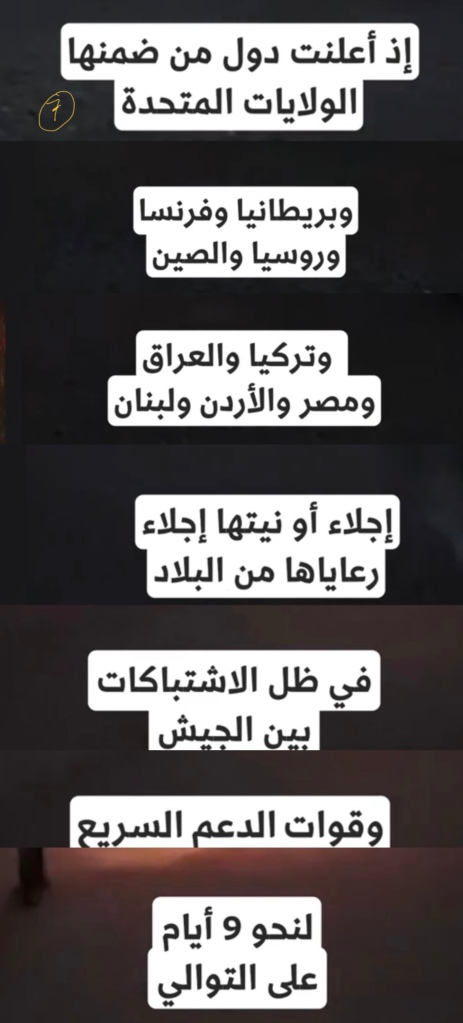The Unique History of Wad Medani Part 2/6

Above, stills accompanying the theme song of the series.
Background to This Week’s Text
This week’s 6-minute excerpt from the arD as-sumur’s documentary series on the historic city of Wad Medani explores the influence the city has exercised on Sudan’s struggle for independence and its prominent religious role as home to many Sufi orders. It is a highly accessible source for viewers wishing to become familiar with some of the key figures in the anti-colonial movement and for those interested in Sudanese Sufism, while offering beautiful views of the city itself.
We also study the lyrics of the series’ evocative theme song.

Above, stills from this week’s excerpt.
The high intermediate / upper-intermediate level text is largely in standard journalistic Arabic and includes references to Sudanese political movements and historical figures that anyone interested in Sudan would like to know about. I have included reference links to these in the notes accompanying the transcript.

Can you remember the plural form of “dome” in Arabic?
Possible Approaches
If you are not familiar with Wad Medani’s history, why not watch the excerpt cold and make notes on any points that interest you?
Alternatively, make notes on the views expressed by the speakers pictured below:

One of the speakers above might be viewed as slightly nostalgic. Which one and why?
If you would like specific comprehension questions, then make notes to answer the questions below:
What is the original name for the Wad Medani communist party? What distinguishes Wad Medani from other Sudanese cities, according to the documentary? What famous political figures have an association with the city? Why is the city’s Sufi connection so important, according to those interviewed?
What is the historical importance of the group of people below? How much do you know about them?

Lexical Focus
How would you say “Sufi orders” in Arabic? And their disciples or adherents? What expressions can you remember for “pious / devout / holy”? What’s the plural of “dome” and “giant” (in the sense of significant historical figure)?
You will hear expressions for “renaissance / revival”, “creativity”, “crystallized”, “accumulated”, “issues”, “interrelated”, “fundamental”, “pure / bright white”, “emerge / emanate”, “anti-colonial/ “imperialism / colonialism”, “dissolve”, discriminate”, and “communist”. Which expressions do you expect to hear?
How do you say “lieutenant” in Arabic? How many other military ranks can you remember? How would you say “embrace”, “flourish”, “grow up / become a young man”, and “bustling”?
In the theme song, you will hear expressions for “roam the plains”, “be destroyed”, “discomfort”, “deep-rooted”, “extend / stretch out” and the Sudanese Arabic word for “errand / trip”. Can you predict which expressions will be used?
There is a military word of Turkish imperialist origin used in the text. Can you find it?
How do you refer respectfully to someone who has died?
Series Theme Song (Minutes 1-2.30)
Lyrics and Explanatory Notes

1 here’s the team (the TV documentary team) that (took up) the challenge; bitHada
2 the road that is long / prolonged; Taala, to be long and stretches out / extends; ithadda
3 these mountains that (that will never be) destroyed bitithadda; from hadda, VIII, land of the golden brown people; where’s its beginning and where’s its end?
4 the road / way; sikka, plural sikak of our mushwaar, plural mashaawiir, errand but also purposeful trip is hard
5 (we do not worry / of no concern; hamm, it’s not important to us) the discomfort (aD-Diig) and the weariness; what’s most our concern /what’s most important (note hamm / ahamma) is to be of one hand
6 Tufnaa (from Taafa,(u)) as-suhuul; plural of sahl; we roamed / wandered the plains
7 `ariiqa; deep-rooted, also pure majestic

Watch the Excerpt Here (Minutes 6-11.15):
Transcript with Explanatory Notes

1 maa daama; as long as / while
2 al-gibaab; domes, plural of gubba
3 al-madkhal al-asaasii; the key / fundamental entry point
4 muriidiihaa; adherents / disciples
5 tabalwarat; crystalized
6 al-mu`Taa; given / perhaps here, its gifts
7 al-mutaraakim; cumulative, growing steadily / heaped up
8 an-naHDa; renaissance
9 al-taqaaliid; traditions
10 al-ibdaa`; creativity
11 riyaaDii; sports, note this word can also mean mathematics


12 al-musaa’il; issues, plural of masaala
13 shakkalat; formed / shaped
14 al-mutadaakhila; interlaced, interlocked, interrelated, connected
15 khaariTa; map
16 an-naaSi`a; spotless / pure al-biyaaD; white / shining
17 as-sulTana al-zurqaa’; the Blue Sultanate; see https://en.wikipedia.org/wiki/Funj_Sultanate
18 al-Harika an-niDaaliyya; literally, the movement of the (anti-colonial / independence) struggle
19 itkawanat; be formed
20 jamiyya` al-luuwaa’ al-abyaaD; The White Flag League; al-luwaa’; banner, flag, also brigade / major-general; see https://en.wikipedia.org/wiki/White_Flag_League
21 al-mulaazim; lieutenant
22 al-orTa; batallion / division. This is a Turkish origin word, meaning army; see https://sudanow-magazine.net/page.php?subId=30&Id=320
23 al-inTilaaqa; start / beginning
24 muu’tamir al-khaarijiin; See https://www.britannica.com/place/Sudan/The-growth-of-national-consciousness#ref48958
25 inbathaqat; emerge / emanate
26 al-da`wa; the call
27 al-Hizb al- shiiyuu`ii; the communist party
28 al-jabha al-mu`aadiyya; the anti-imperialist / colonialist front (jabha)
lil-isti`maar; imperialism
29 taraba; was brought up / raised / educated
30 tara`ra ; flourished
31 shabba; grew up / become a young man
32 iHtaDana; embrace; cab also mean to cuddle and to nurse in other contexts
33 see: https://en.wikipedia.org/wiki/Qahtan_Muhammad_al-Shaabi
34 `umaaliqa; giants, plural of
`imlaaq

35 dhaabat fiihaa al- `anaaSir; and elements, plural of
`unSur (here referring to tribal differences) dissolved (dhaabat)
36 aHbaab; loved ones
37 jawhari; fundamental, ultimate, intrinsic, substantial,
38 yata`anSaruu; literally to elementallize, here to differentiate on race / tribe, discriminate
39 al-wira`; pious, devout, holy
40 ta`uj; bustling with, see below:




























































































































